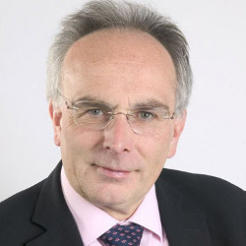Conservative MP Peter Bone is today planning to table a motion in Parliament aimed at amending the Charities Act to restore the presumption that all religious groups are for the public benefit and therefore can be charities.
Bone supports the position of the Plymouth Brethren Christian Church, which also recently recommended to the Public Administration Select Committee that the part of the Charities Act that removed the presumption of public benefit for religious charities, should be repealed.
The Plymouth Brethren has had its application for charitable status turned down by the Charity Commission because the regulator decided that the exclusivity with which the Church conducts many of its activities, did not provide sufficient benefits to the wider public. Together with another Exclusive Brethren group, the Plymouth Brethren is planning to appeal the decision in the Charity Tribunal next year.
But a number of Conservative MPs have already expressed their opposition to the Commission’s decision, and today in the Commons, Peter Bone will propose a ten minute rule motion aimed at repealing the relevant section of the Charities Act.
The motion proposes to bring in a bill that will “amend the Charities Act 2011 to treat all religious institutions as charities; and for connected purposes”.
NCVO opposes the motion
The NCVO circulated a briefing to MPs ahead of the tabling of the motion, opposing its intention. In the briefing, the NCVO pointed out that public benefit is essential to promoting public trust and confidence in the charity brand, and that religious groups have always had to advance religion amongst the public in order to qualify for charitable status.
Elizabeth Chamberlain, policy officer at NCVO, said: “Public benefit is what makes a charity a charity, and most are keen to demonstrate the value of their work.
“Peter Bone’s plan risks downgrading religious charities in the public mind. They would become unique among charities in not having to show how they are of benefit to the public.”
MP: 'Sham charities would be disqualified'
On Peter Bone’s Twitter feed on 5 December, he was asked by @Dan_Newcastle: “don't know much about this, but won't that make it easy for sham institutions to be set up under over (sic) of being a charity?”
That same day Bone tweeted back: “No. It is only the presumption that religious institutions are charities. Sham religions would be disqualified.”
According to the Parliament Glossary, bills introduced under the ten-minute rule are one of the ways in which backbench MPs can introduce legislation. However, the process is used more as a means of making a point on the need to change the law on a particular subject as there is little parliamentary time available. They mainly provide the opportunity for MPs to test Parliament's opinion on a particular subject.
Hurd: statutory public benefit definition being revisited
Also in Parliament this morning, minister for civil society Nick Hurd was asked whether he would give an underaking that the law would be changed to ensure that religious groups are not stripped of their charitable status.
He replied that he too wanted to see the Plymouth Brethren case resolved "as quickly and cheaply as possible" by the Charity Commission and the Charity Tribunal.
He also reminded the House that the government was reviewing the entire Charities Act with Lord Hodgson, "including whether we should revisit the issue of a statutory definition of public benefit".









